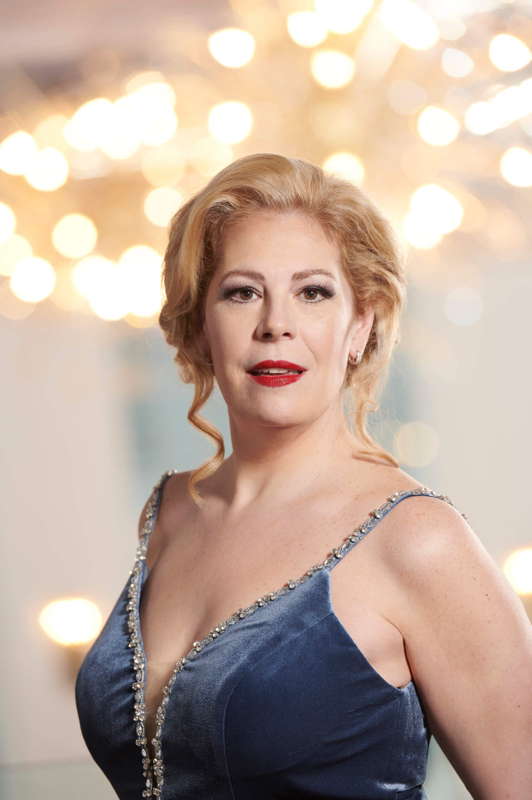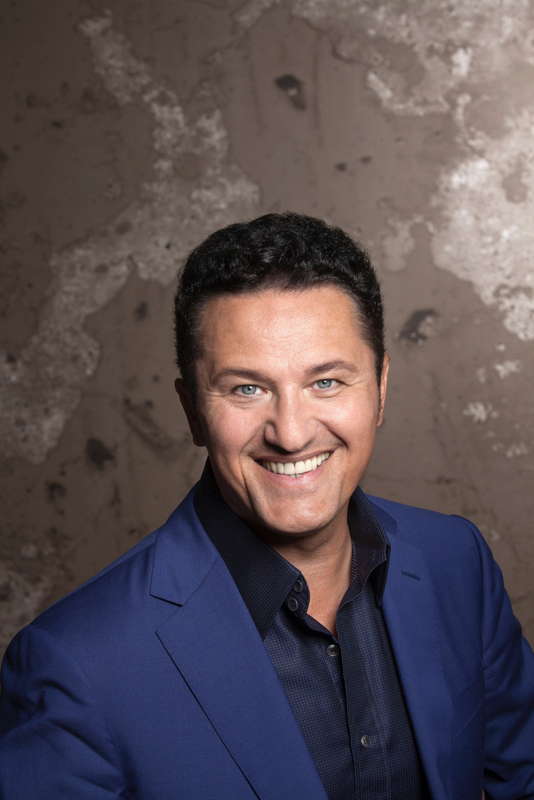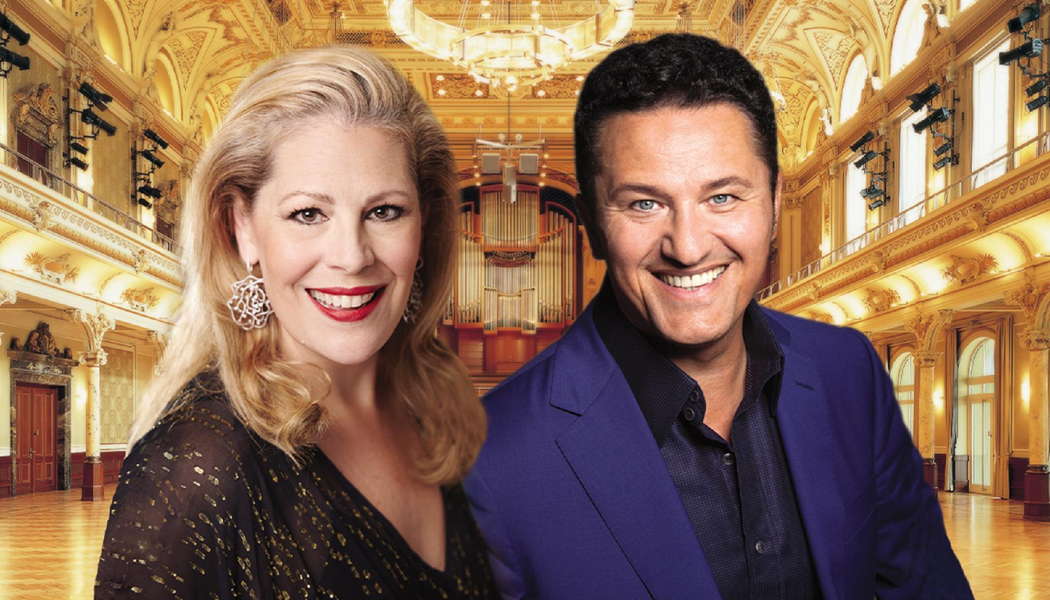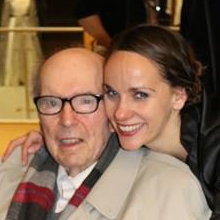 UPDATES: There's a new feature every day at Classical Music Daily. Read about the various ways we can keep in touch with you about what's happening here.
UPDATES: There's a new feature every day at Classical Music Daily. Read about the various ways we can keep in touch with you about what's happening here.
Smooth High Notes and Powerful Drama
Piotr Beczała and Sondra Radvanovsky's Met Stars Live recital from Wuppertal, recommended by MARIA NOCKIN
Met Stars Piotr Beczała and Sondra Radvanovsky sing a varied program of arias accompanied by pianist Vincenzo Scalera. Smooth high notes and powerful drama are the hallmarks of these artists' performance from Germany's historic city hall in Wuppertal. They sing arias and duets from some of the many classic operas they've performed on the stage of The Met, as well as selections from less frequently played works they would like the public to know better.
As has become standard with these concerts, Christine Goerke introduced Metropolitan Opera General Manager Peter Gelb, who explained some of the machinations of working within the restrictions applied by various governments to combat COVID-19.
Wearing a black strapless gown, Sondra Radvanovsky opened the program with 'Pace, pace, mio Dio' from the last act of Verdi's La Forza del Destino. Radvanovsky is known for her ability to sing pianissimo and increase the sound smoothly to a fortissimo. Here she came in at a mezzo-forte which developed into a pianissimo as her character searched for peace. The sounds were sweet and she seemed quite at peace with her excellent delivery as she ended with a blood-curdling fortissimo curse.

Sondra Radvanovsky. Photo © Michael Cooper
Piotr Beczała's opening aria was 'Quando le sere al placido' ('When the evenings are calm') from Verdi's Luisa Miller, a markedly more peaceful selection than that of the soprano. He sang it with seemingly effortless polished tones.
They came together to sing the duet, 'Teco io sto ... Non sai tu che se l'anima mia ... Oh qual soave brivido' from Verdi's Un Ballo in Maschera. The voices were lustrous and the emotion intense. Teatro all Scala pianist Vincenzo Scalera showed his virtuosity with gorgeous articulation in the run of the coda. While Radvanovsky and Beczała were singing, working technicians were evident as the screen picture changed to show more spotlighting and a darker background. At times the singers did not face each other, perhaps because of a COVID rule.
Radvanovsky and Beczała then sang two arias and a duet form Giordano's Andrea Chénier. First, he sang the melodic 'Come un bel dì di Maggio' (Like a beautiful day in May) with pure, golden tones. On the day described, the sky must have been as blue as the tenor's eyes. The soprano's aria was tragic. In 'La mamma morta' (The dead Mamma), Maddalena's mother, killed by the mob, lies in a doorway. Radvanovsky sang with a tear in her voice. They continued together with 'Vicino a te s'acqueta ... La nostra morte' (Close to you there is peace ... Our death). Chenier and Maddalena go to their death expecting to be happy together in the afterlife.
The artists got a bit of respite while the audience saw the Met HD film of Beczała's rendition of 'L'anima stanca' (The tired soul) from Cilea's Adriana Lecouvreur and Radvanovsky's interpretation of 'Morró, ma prima in grazia' (I die, but first in the state of grace) from Verdi's Un Ballo in Maschera. Radvanovsky returned live to sing the poignant 'Sola, perduta, abbandonata' from Puccini's Manon Lescaut. She convinced me to come see her sing that role wherever she does it.
Beczała then offered the aria 'Mamma, quel vino è generoso' (Mom, this wine is strong) from Mascagni's Cavalleria Rusticana. Turiddu sings it before going to his death in a knife fight with the husband of Lola, his current love. In the aria, Turiddu asks his mother to be good to Santuzza because he had promised to marry her. Beczała's emotion-packed singing could even make good people feel sorry for a bad guy.

Piotr Beczała. Photo © Johannes Ifkovits
Radvanovsky returned as the interpreter of great art that she is with a glowing presentation of 'Io son l'umile ancella del genio creator' (I am only the handmaiden of the genius creator) from Cilea's Adriana Lecouvreur. Beczała took this opportunity to introduce 'Szumią jodły na gór szczycie' (The rustle of fir trees on the top of the mountains) from Moniuszko's Halka to the world-wide audience. There definitely are some Polish operas that deserve a wider audience, Szymanowski’s Krol Roger (King Roger), seen a few years ago at Santa Fe Opera, is one, and Moniuszko's Halka may be another.
Radvanovsky and Beczała concluded the concert with excerpts from Dvořák's Rusalka. The title character, a water nymph, sings to the inconstant moon 'O mesicku nevi hlubokem' (Don't know about the moon'). The Prince she loves addresses her as 'Divine one, gentle and sweet' and their final death-inviting duet begins with 'Do you recognize me, my love?' As the fairytale ends, its characters sing their way into eternity with exquisite tones heard around the world.

Publicity image of Sondra Radvanovsky and Piotr Beczała for their Met Stars Live recital
Radvanovsky and Beczała's voices blend beautifully and they present an excellent program for home viewing. Their concert will stream on the Met Stars Live website for US$ 20 per household through 5 February 2021.
Copyright © 25 January 2021
Maria Nockin,
Arizona USA

MORE ARTICLES ABOUT NEW YORK METROPOLITAN OPERA
MORE CLASSICAL MUSIC ARTICLES ABOUT GERMANY



